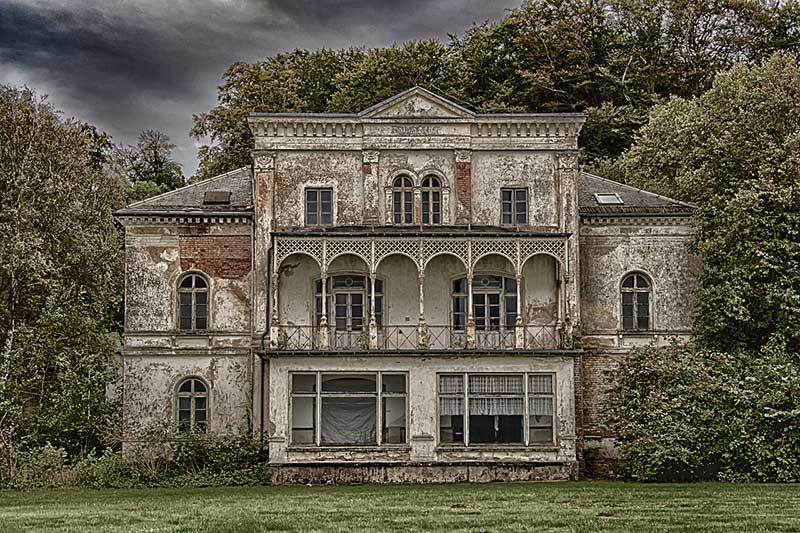This page may contain affiliate links. If you click and buy, we might get a small commission at no cost to you.
Old houses are full of memories and history, which gives them a warm homey vibe that new houses just cannot compete with. But is buying an old home really worth it? There are several pros and cons of buying an old house, and you should consider each one thoroughly to ensure you have made an informed decision.
Pros and cons of buying an old house
6 pros to buying a house
Buying an old house can provide plenty of positives for you and your bank account that you won’t find with new houses. Keep reading to find out what those pros are.
1. Prime Locations And Larger Lots
Many older homes are built near the town’s center, which means easier access to schools, shops, and other amenities. You will also find that older homes typically include more land than newer homes. This is because older homes were built during a time when land was easier to obtain. And when you consider just how scarce land is (they don’t make new land, so once it’s all bought up, that’s it), you will understand why having a larger lot is on the pro side of the list.
2. Good Bones
Newer homes are often built with materials that are less expensive and not as high quality as the older homes. With that said, however, these materials are still structurally sound, but they may not last as long or withstand long-term wear and tear as well as older homes.
One example of this is kitchen cabinets. Newer homes typically have cabinetry that will warp or splinter in just a few short years. Older homes are more likely to be built with real hardwood and have more solid construction.
3. Lower Price
Many older homes have a much lower price tag than newer homes. This is typically because they are considered less updated and, in some areas, less desirable. When compared with a newer home of the same size in the same area, the older home would typically have a lower asking price. This makes them a great option for those who want more bang for their buck.
4. Less Property Taxes
Newer homes are generally assessed higher in value than their older counterparts. And the lower the assessment of your home, the less you pay in property taxes.
5. Increased Character
Newer homes tend to be a bit “cookie-cutter” with the same look, feel, and features. Old houses, however, can feel cozy with a certain charm that newer homes lack. They are often filled with woodworking details and vintage wallpaper that you cannot find in today’s market and definitely not in newer homes.
6. Good Investment
Older homes can prove to be a good investment since you will be able to increase the property value. Renovations, upgrades, and home improvements can all increase the value of your older home, which will come in handy if you need to use your own as collateral for a loan, or if you ever decide to sell the house.
7 cons to buying a house
There are several cons to buying an old home that one should consider before taking the leap to purchase the house.
1. Poor Insulation
Most old homes are notorious for being energy hogs. Their insulation is usually lacking, which results in excessive drafts, and loss of the heated or cooled indoor air. This not only makes your home less comfortable, but it also increases your heating and cooling bills. Furthermore, it puts extra wear and tear on your heating and cooling system, since the system has to work harder to keep up with the loss of air.
2. Out-Dated Heating Systems
Out-dated heating systems are a huge downfall for older homes. These systems are not energy efficient and use more energy than a newer system just to keep the home at a comfortable temperature. Furthermore, replacing these old heating systems is not cheap, and you may even have to replace the entire ductwork if it hasn’t been replaced in some time. All of this will lead to more money out of your pocket.
3. Inefficient Plumbing
Older homes usually have copper plumbing, while newer homes are made with PVC plumbing pipes. The PVC pipes are easier and cheaper to replace if an issue arises, while copper pipes have a variety of downfalls. Copper pipes can often fail when the water temps are over 180 degrees. They can also cause your water to have a metallic taste. Another disadvantage of copper pipes is that condensation forms inside them, which can freeze and block the flow of water.
4. Old Wiring And Out-Dated Electrical Box
Old wiring is another problem that older homes often have. Not only can old wiring be annoying, but it can also pose a serious risk to you and your family. The house may also have an outdated electrical box, which can cause breakers to be blown if you try to run two things, such as a microwave and a vacuum, at the same time.
5. Bad Windows
After the 1970 energy crisis, energy-efficient windows became standard for houses. Older homes built after that time, however, won’t have this feature unless the previous owners upgraded them.
Instead, older homes typically have single pane windows that don’t provide as much protection against drafts and air leaks as double pane windows. These old windows can not only make your home look dingy and outdated, but they are a main culprit of energy loss and high heating and cooling bills.
6. Repair Bills And Upgrades
With an older house, roofs, windows, and other priority items may need to be replaced in the near future. With these replacements comes a hefty price tag. Newer homes typically won’t have these issues for a while. Furthermore, home buyers may want to upgrade some features of the old home. Old homes commonly have outdated kitchens and bathrooms that can make them undesirable for home buyers.
7. Increase Cost Of Insurance
Homeowners insurance is usually higher for older homes because insurance companies weigh the risk associated with each policy. And since older homes usually have outdated systems, such as plumbing and electricity, the insurance company sees them as a higher risk than newer houses.
Considerations
Now that you know the pros and cons of buying an old house, you can decide whether an older home is the right choice for you. People who are looking for a fixer upper or those with a knack for home improvement may find an older home suits them better.
If, however, you want a home with little to no work required in order to move in, or one that won’t require an excessive amount of upgrades, pass on older houses and instead look for newer “move-in ready” houses.



